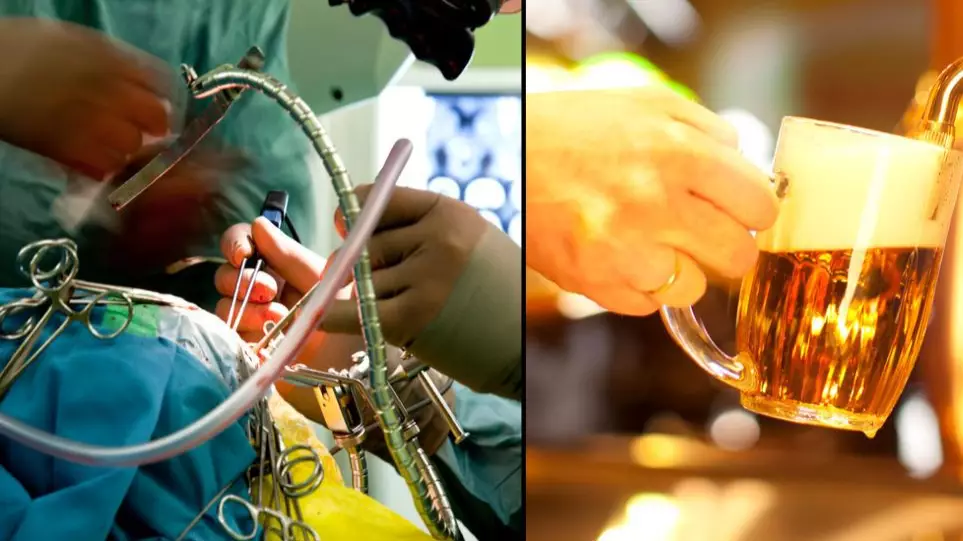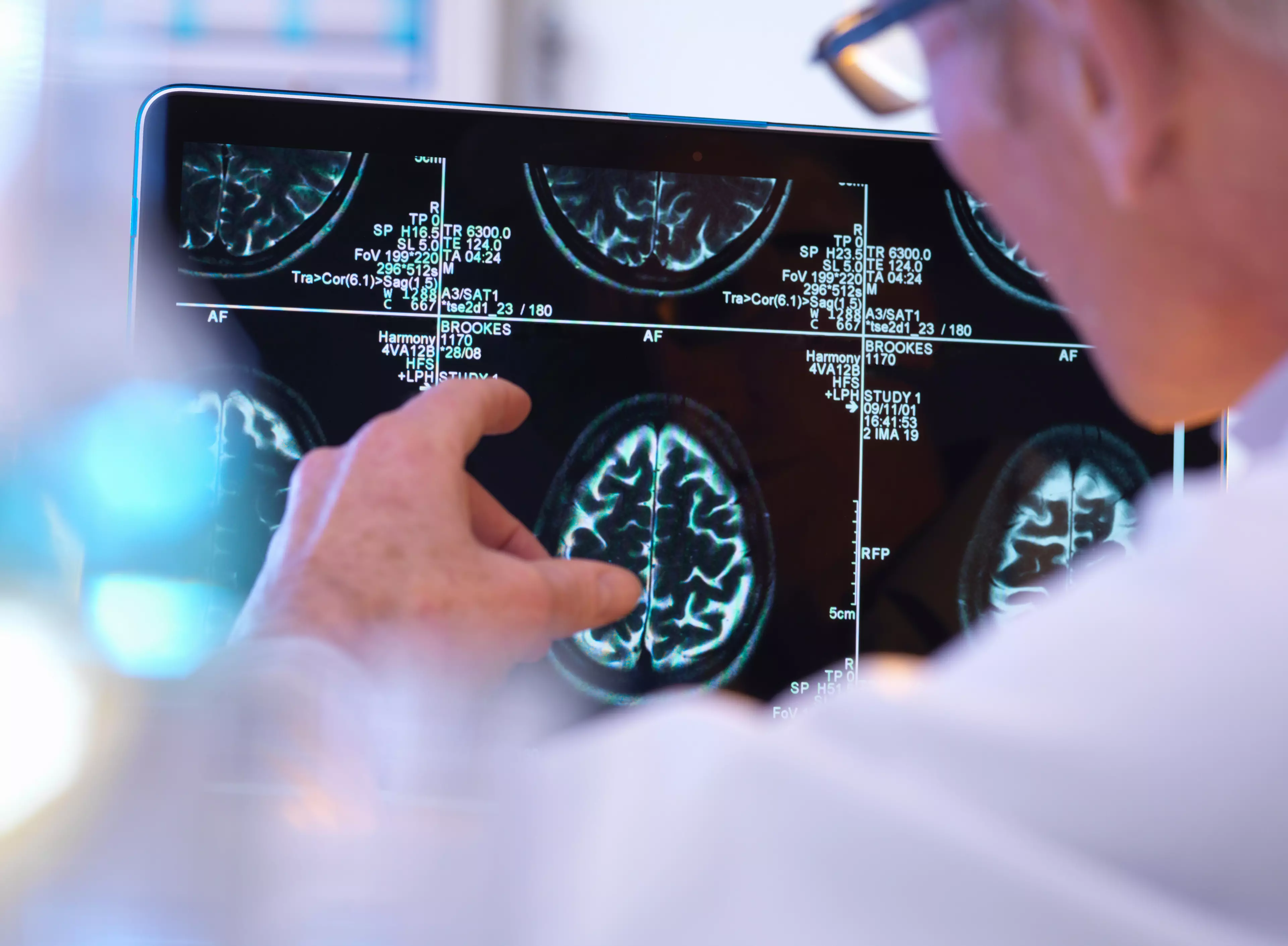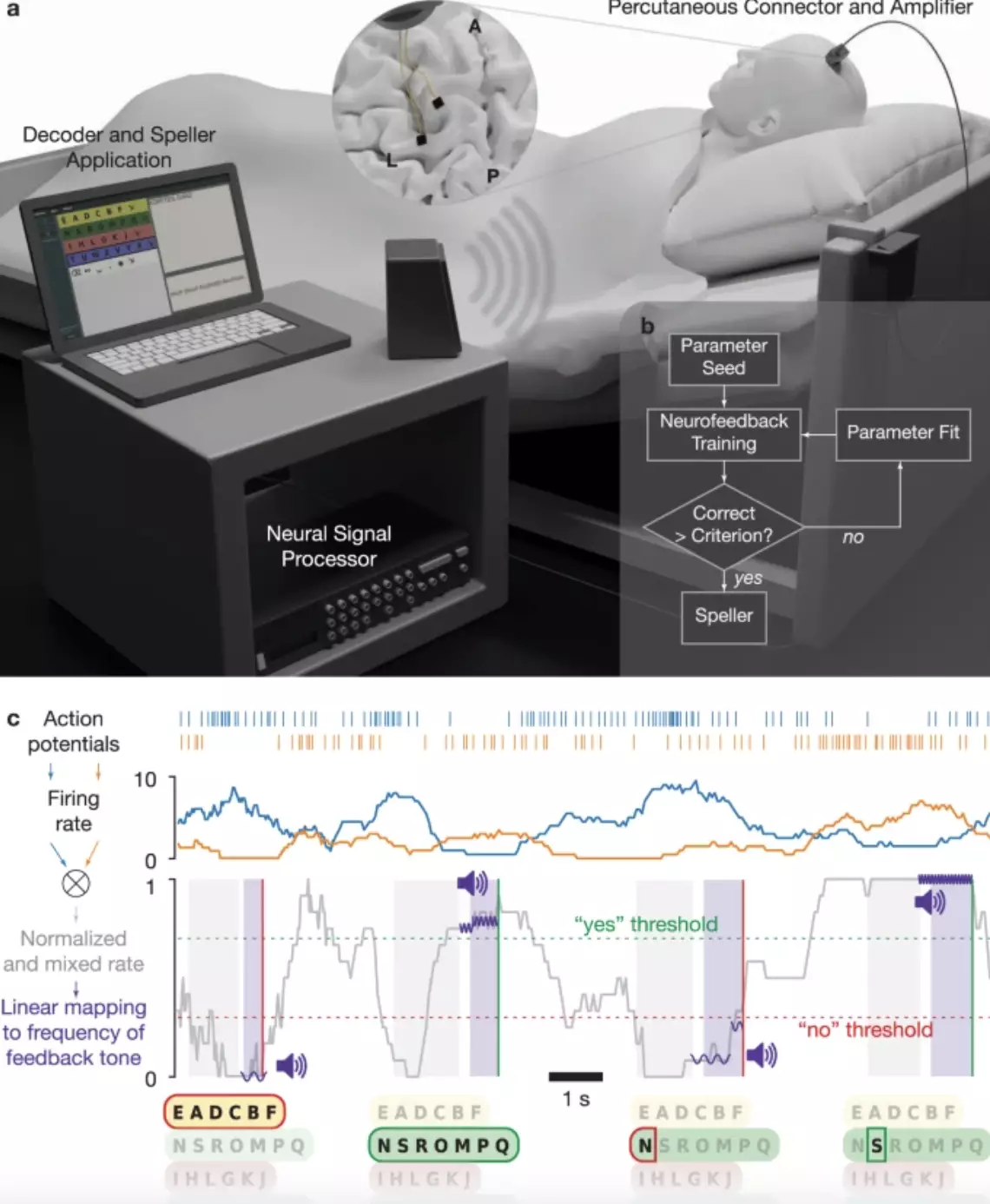
A microchip brain implant has helped a paralysed man communicate for the first time in years.
The unidentified German patient was diagnosed with amyotrophic lateral sclerosis (ALS) in 2015 when he was just 30 years old. The disease causes a loss of muscle control, but while his body weakened the man's cognitive function remained the same.
Before the man's condition had progressed to where it is now, he had been able to 'speak' to his loved ones via his eye movements. Relatives would hold up a grid of letters and point to each row, while watching his eyes for signs of movement.

However, his condition had since worsened to the point that his family feared he would soon no longer be able to do this.
As part of a new study, the man had two microchips implanted into his motor cortex - the area of the brain that controls movement.
Researchers Ujwal Chaudhary and Niels Birbaumer used a method called neurofeedback, in which a person is shown their brain activity in real time - with the hopes that the man could learn to control it.
When the microchips inside the man's brain recorded an increase of activity, a computer would play a rising sound, when the man's brain recorded a decrease, the computer would play a descending tone.
According to the study, which was published in Nature Communications, it took the man just two days to learn how to control this tone.

The researchers then used a technique similar to the eye movement one he had previously used - but this time instead of eye movements, the man was able to choose or dismiss letters by using the rising or descending tones.
Researchers say this technique allowed the man to spell out his name, his son's name and his wife's name, before eventually moving on to master complete sentences.
Chaudhary said one of the first sentences the man managed to spell out was: "Boys, it works so effortlessly."
Via the system, the man was able to request specific meals, direct his carers and even ask to watch films with his son.
Chaudhary added: "Many times, I was with him until midnight, or past midnight. The last word was always 'beer'."
The team are now hoping to raise funds to provide similar implants to several others who have ALS.
Topics: World News, Health